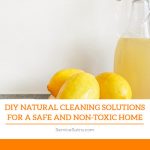Blocked drains can be a significant inconvenience and even a health hazard if not addressed promptly. They can cause unpleasant odours, slow-moving water, and even sewage backups in homes and businesses. Understanding the top causes of blocked drains is the first step in preventing them from occurring. This article with tips from Paul Riders drain company in Darlington will provide a comprehensive overview of the most common causes of blocked drains, as well as practical tips for preventing them from happening and how to unclog your drains. Whether you’re a homeowner, business owner, or simply someone who wants to keep their plumbing system in top condition, this article is a must-read. So, let’s dive in and take a closer look at the leading causes of blocked drains and how you can prevent them.
What Are A Blocked Drain
A blocked drain is a plumbing issue where water cannot flow freely through a pipe or sewer system due to an obstruction. This obstruction can be caused by various factors, such as a buildup of waste material, hair, foreign objects, tree roots, or even grease and fat deposits. Blocked drains can occur in sinks, toilets, shower drains, and even main sewer lines. In severe cases, a clogged drain results in slow-moving or stagnant water, unpleasant odours, and sewage backups into homes and businesses. It is essential to address the issue promptly to prevent further damage and potential health hazards.
Understanding The Causes Of Blocked Drains Is Important For Several Reasons
- Prevention: By understanding the common causes of blocked drains, you can take steps to prevent them from occurring in the first place. For example, you can avoid flushing certain items down the toilet or be more careful about what you put down the sink.
- Early Detection: Understanding the causes of blocked drains can help you detect problems early on before they become significant issues. For example, if you notice that your sink drains slowly, this could signify an impending blockage.
- Cost Savings: Early detection and prevention of blocked drains can save you money in the long run by avoiding costly repairs and damage to your home. Plumbing issues can quickly become expensive, so it’s best to address them as soon as possible.
- Increased Home Value: Maintaining a healthy plumbing system is essential for the value of your home. Blockages and other plumbing issues can lead to water damage, unpleasant odours, and other problems that can decrease the value of your home.
- Improved Health and Safety: Blocked drains can lead to unpleasant odours and even health hazards, such as mould and bacteria growth. By understanding the causes of blocked drains, you can take steps to prevent these issues from occurring, improving the health and safety of your home.
Top Causes Of Blocked Drains
Blocked drains are a common problem that can lead to unpleasant odours, slow drainage, and even water damage. There are several common causes of blocked drains. Some of the most frequent reasons include the following:
- Hair and Soap Scum: Hair and soap residue can quickly build up in pipes, leading to the difficult removal of clogs. This is especially common in bathroom drains where hair, soap, and other debris can quickly become trapped.
- Grease and Fat: Cooking oil, grease, and fat can quickly build up in pipes, creating a sticky substance that can cause clogs. This is often a problem in kitchen sinks and drains.
- Food Waste and Scraps: Food waste, such as peels, seeds, and bones, can quickly become trapped in pipes, leading to blockages. This is a common problem in kitchen sinks and garbage disposals.
- Hygiene Products: Hygiene products such as sanitary pads, wipes, and cotton balls should not be flushed down the toilet as they can cause blockages.
- Foreign Objects: Foreign objects, such as toys, jewellery, and other small items, can quickly become lodged in pipes, leading to blockages. This is often a problem in toilets and sinks drains.
- Tree Roots: Tree roots can grow into pipes, causing blockages and damaging pipes. This is a common problem in older homes with ageing pipes.
- Broken or Collapsed Pipes: Pipes that are broken, cracked, or collapsed can cause blockages and restrict water flow. This is often a result of ageing or damage to the pipes.
How To Prevent Blocked Drains
Blocked drains can be a nuisance and costly to fix, but there are several steps you can take to prevent them from happening:
- Be Mindful Of What You Put Down The Drain: Avoid flushing anything down the toilet other than human waste and toilet paper, and be careful about what you put down the sink. Food waste, grease, and other items can easily cause clogs.
- Use Strainers In Sinks And Showers: Installing strainers in sinks and showers can prevent hair, soap, and other debris from going down the drain, reducing the risk of blockages.
- Run Hot Water After Using The Sink: Hot water after using the sink can help flush out any residue or debris, reducing the risk of blockages.
- Use A Plunger Regularly: A plunger can help keep your drains flowing freely, preventing blockages from forming.
- Consider A Regular Drain Cleaning Schedule: A regular drain cleaning schedule, performed by a professional plumber, can help prevent blockages from occurring.
- Be Careful About Pouring Grease Down The Sink: Grease can solidify in pipes and cause clogs, so it’s best to avoid pouring grease down the sink. Instead, pour it into a container and dispose of it in the trash.
- Inspect Pipes and Address Any Damage: Regularly inspecting your pipes and addressing any damage, such as cracks or leaks, can help prevent blockages and keep your plumbing system in good working order.
Professional Solutions For Blocked Drains
Professional solutions may be necessary if you cannot clear a blockage using the preventative measures outlined above or if you experience recurring jams. Here are some of the most common professional solutions for blocked drains:
- Hydro Jetting: This is a process where high-pressure water clears the blockage in pipes.
- Drain Snaking: A drain snake is a flexible drill that removes blockages in pipes.
- Camera Inspection: A camera inspection allows plumbers to visually inspect the inside of pipes and locate the source of the blockage.
- Trenchless Sewer Line Replacement: In severe cases, trenchless sewer line replacement may be necessary. This involves using specialised equipment to replace damaged pipes without digging up the entire sewer line.
Importance Of Regular Maintenance And Professional Solutions
The importance of regular maintenance and professional solutions for blocked drains cannot be overstated. Routine maintenance, such as the preventative measures outlined above, can help prevent blockages from occurring in the first place and extend the life of your plumbing system. Professional solutions, such as hydro jetting, drain snaking, camera inspections, and trenchless sewer line replacements, can effectively address any blockages.
Using a combination of preventative measures and professional solutions, you can keep your plumbing system functioning smoothly and avoid blocked drains’ inconvenience and potential health hazards.
In conclusion, it is recommended to practise regular plumbing maintenance and seek a professional plumber’s assistance when necessary. Addressing blocked drains promptly and effectively can help prevent further damage to your plumbing system and ensure that your home or business is free of unpleasant odours and sewage backups.






